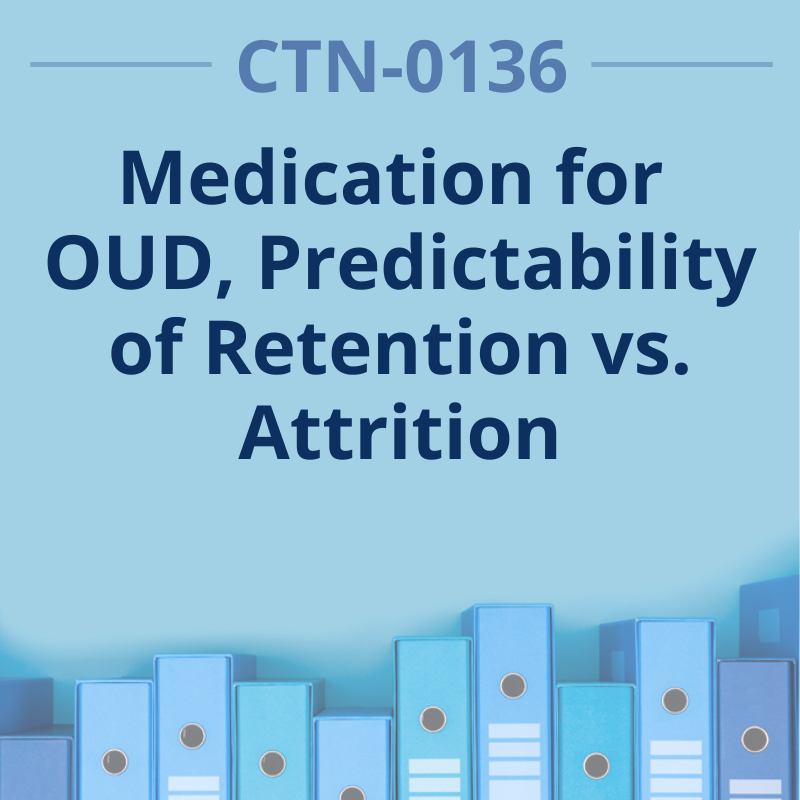CTN-0136: Medication for Opioid Use Disorder, Predictability of Retention vs. Attrition

Jonathan H. Chen, MD, PhD
Co-Lead Investigator
Stanford University School of Medicine
jonc101@stanford.edu
Scott Kollins, PhD
Co-Lead Investigator
Holmusk
scott.kollins@holmusk.com
The harms of opioid use disorder (OUD) include overdose sequelae and deaths, costs of healthcare and law enforcement costs, and worsened social outcomes from family disruption and loss of employment. Perhaps even more tragic is that effective treatments such as buprenorphine are available, but unpredictable patient retention in medication for opioid use disorder (MOUD) treatment results in missed opportunities for all. The proposed study will use real-world evidence embedded in electronic medical records of patients receiving buprenorphine treatment, augmented with natural language processing tools, to complete key aims: 1) determine which clinical factors are predictive of opioid use treatment retention vs. attrition and 2) develop and validate a risk calculator for opioid use treatment retention vs. attrition.
Related Resources